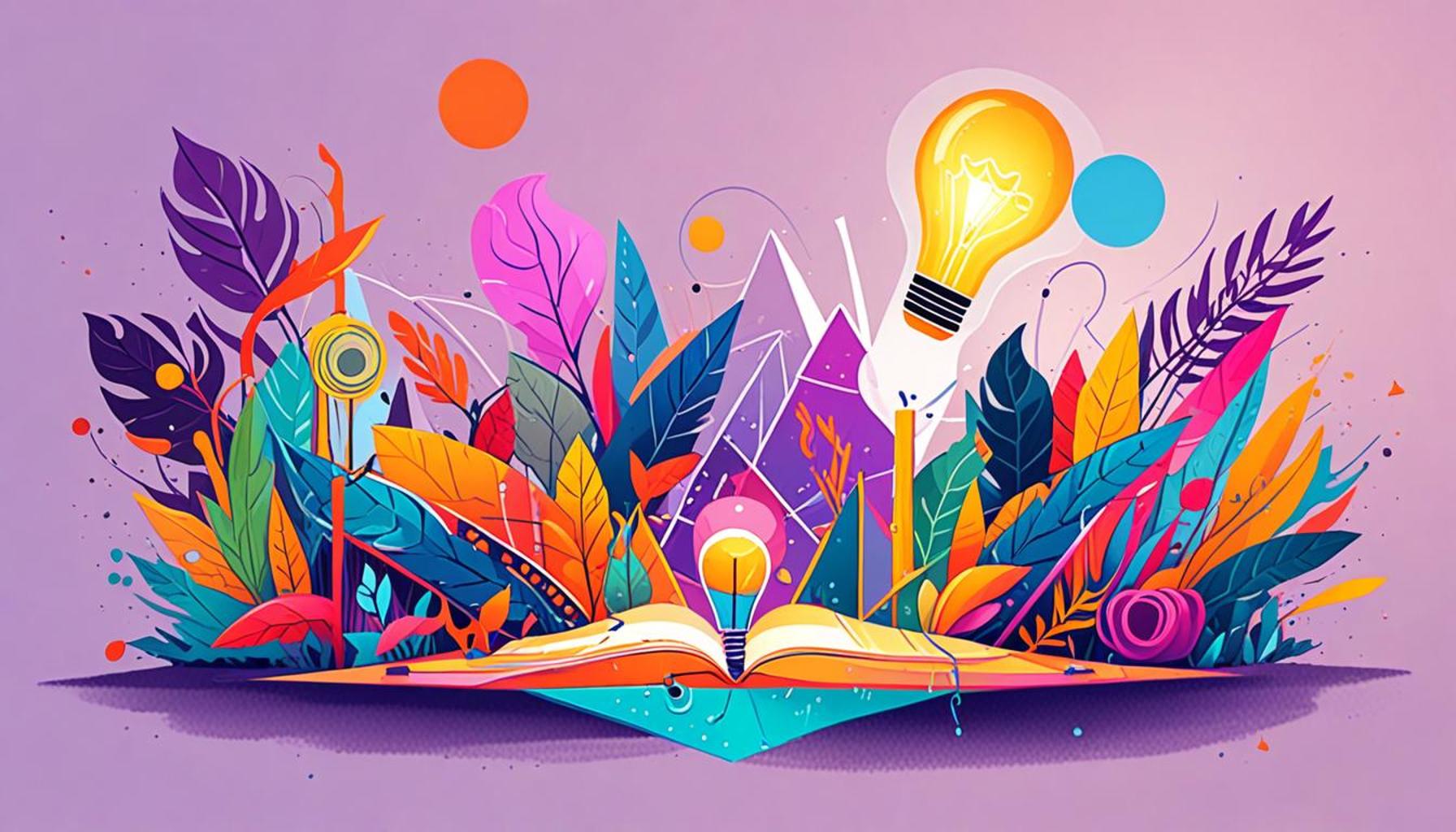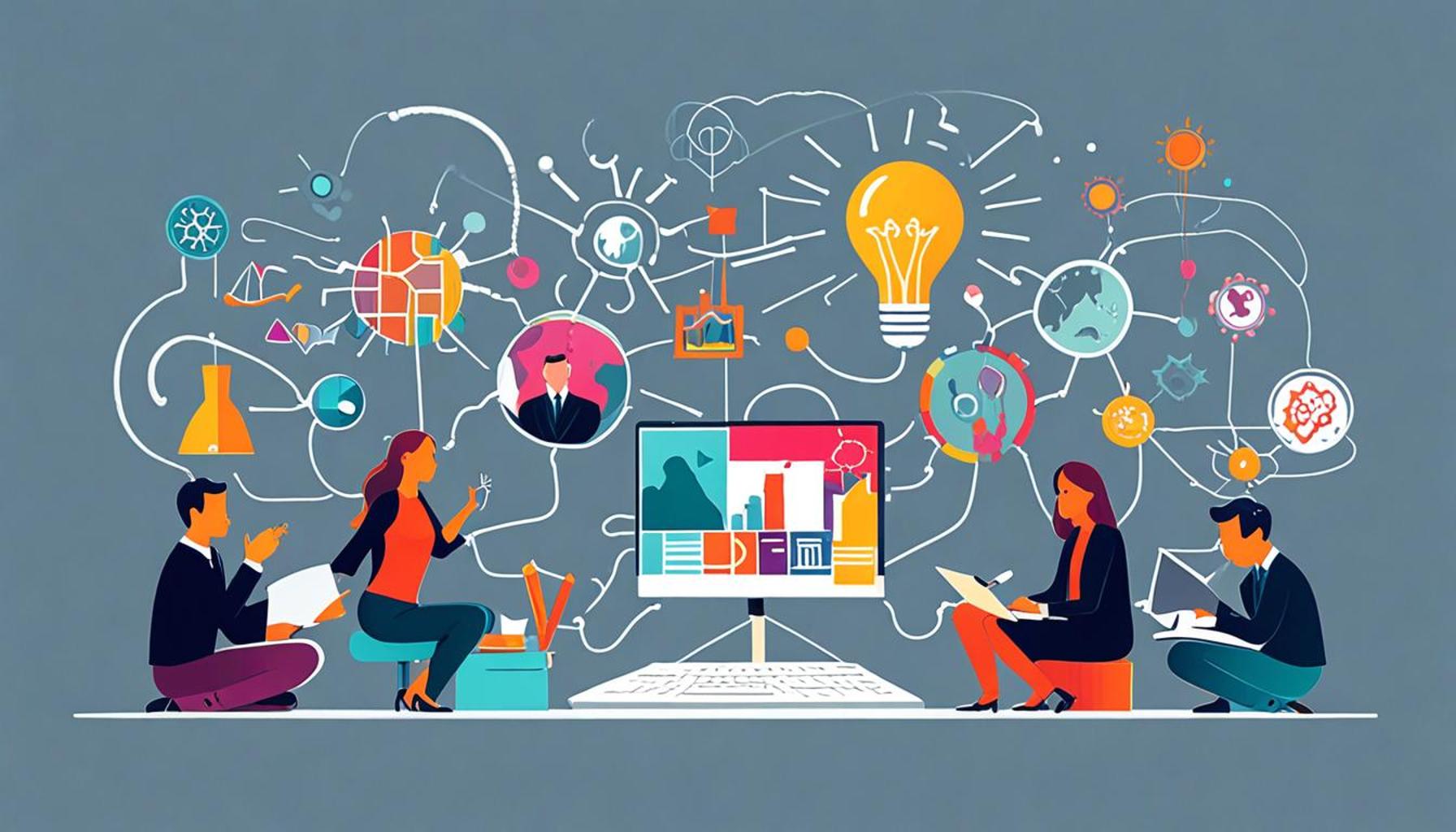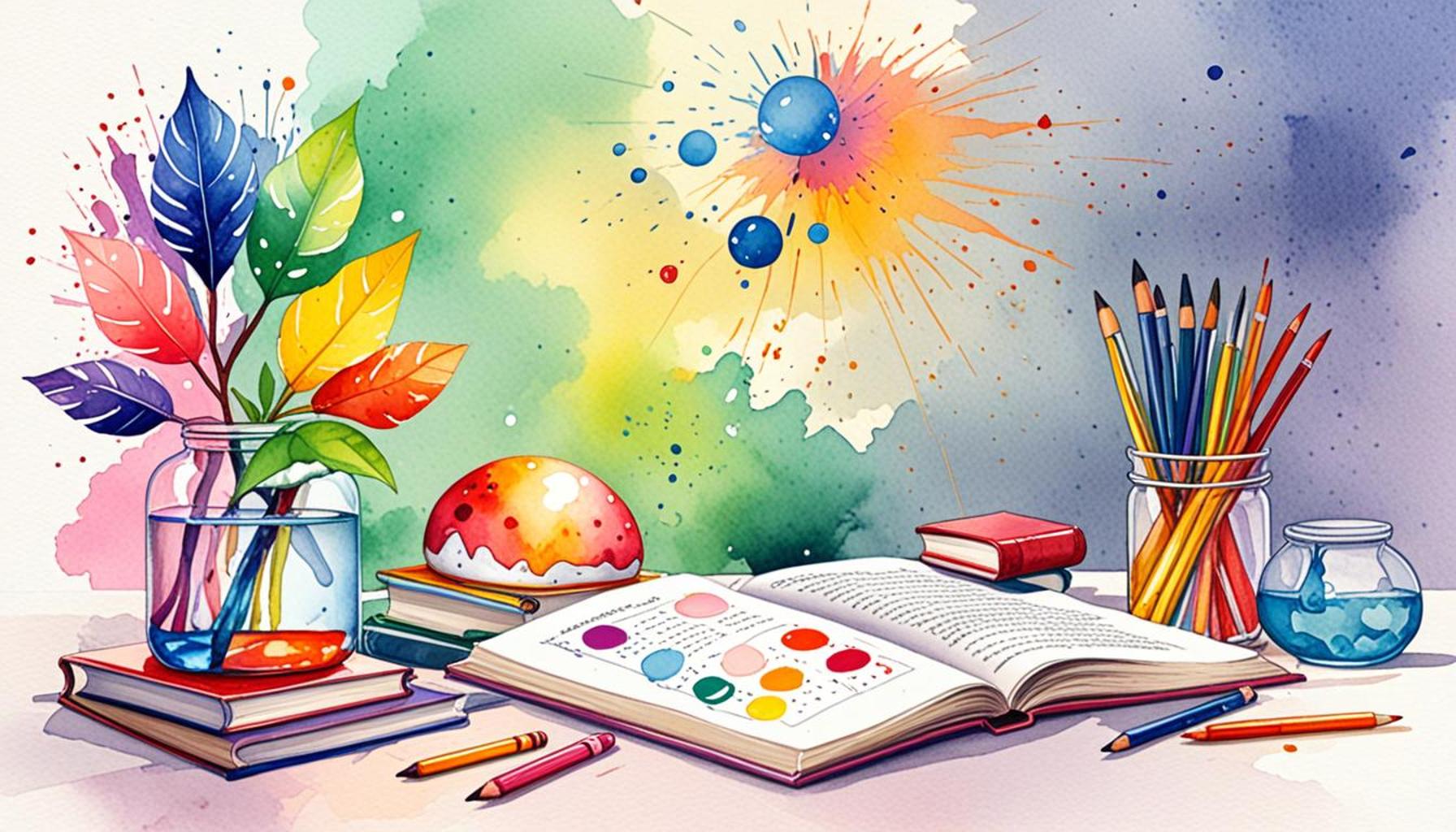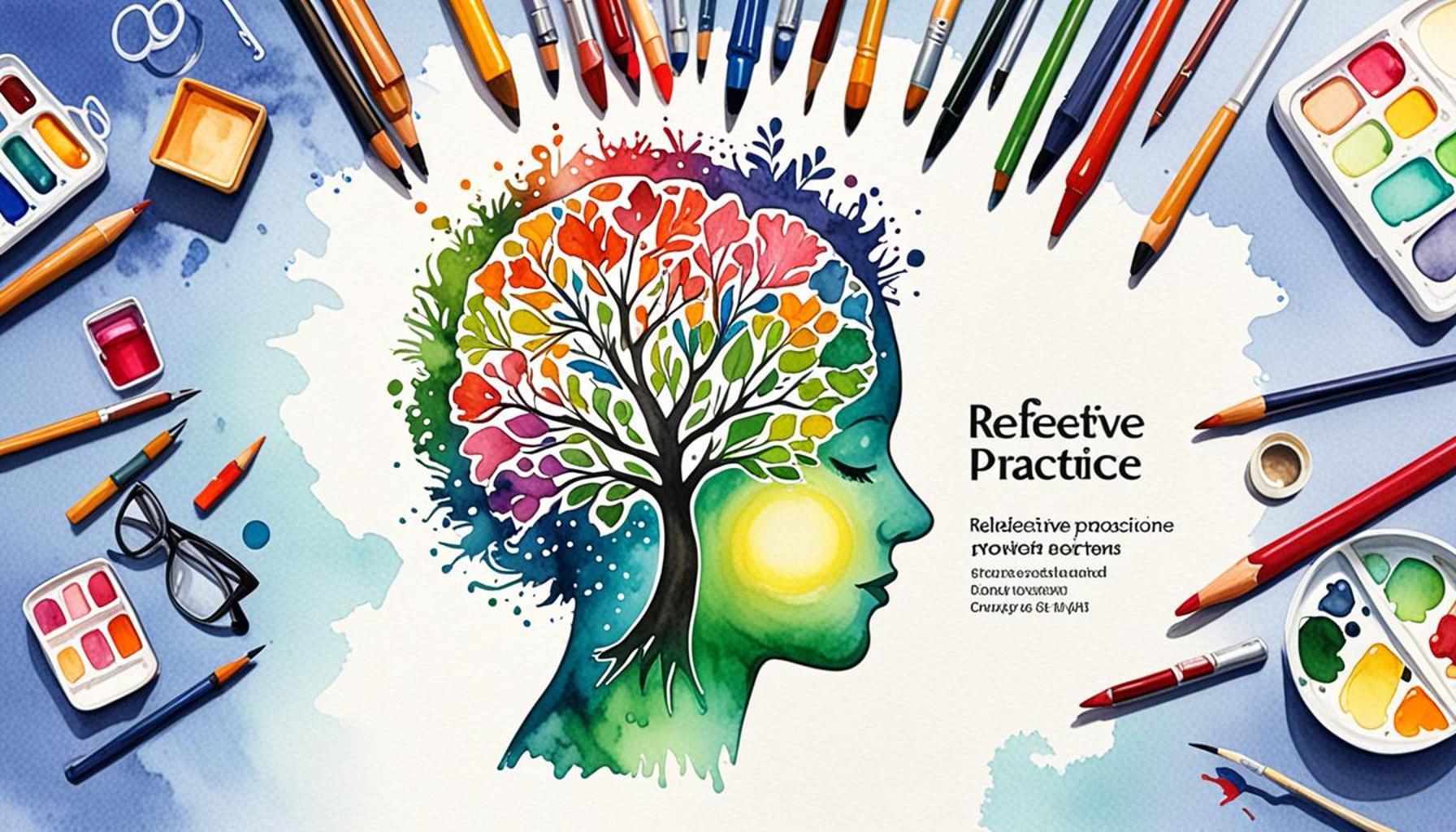Developing Reflective Practice Skills to Enhance Adaptability in Changing Situations

The Importance of Reflective Practice
In a rapidly evolving landscape, being adaptable is more important than ever. In Nigeria, a nation that is undergoing significant economic and cultural shifts, the ability to pivot and adjust to new situations can determine success in both personal and professional realms. The process of developing reflective practice skills enables individuals to cultivate a resilient mindset essential for navigating these changes.
What is Reflective Practice?
Reflective practice involves actively engaging with experiences to assess what happened, why it happened, and how one can improve in the future. This iterative cycle of learning is crucial not just for personal growth but also for professional development. It encompasses several key aspects, including:
- Critical thinking: This entails evaluating situations from various viewpoints. For example, a health worker in Kano might assess the efficacy of different outreach methods for vaccination drives by considering feedback from both community members and health officials.
- Self-awareness: Recognizing one’s strengths and weaknesses is vital for improvement. An entrepreneur in Abuja might identify their inability to manage finances and seek resources or mentorship to enhance that area.
- Continuous learning: In a country where technology and trends evolve swiftly, embracing new knowledge is indispensable. Staying current with industry developments could mean the difference between thriving and merely surviving.
Real-World Applications of Reflective Practice
Reflective practice isn’t just an academic concept; it’s a practical tool that can be applied across various fields. For instance, a teacher in Lagos may reflect on student assessments to adjust instructional methods, ensuring that each child’s learning needs are met. By considering what works and what doesn’t, they contribute not only to their professional growth but also to improved student outcomes.
Similarly, a business owner in Port Harcourt can utilize reflective analysis to modify their product offerings based on customer feedback and trends. By systematically evaluating interactions with clients, they can adapt their strategies, leading to higher customer satisfaction and improved sales.
Techniques to Enhance Adaptability
As we delve deeper into the practice of reflection, several techniques stand out as particularly beneficial:

- Journaling: Regularly recording thoughts and experiences can help in identifying patterns and areas for improvement.
- Peer feedback: Engaging colleagues or friends in discussions about experiences can provide diverse insights and foster growth.
- Mind mapping: This visual representation of thoughts can aid in organizing and processing experiences.
By employing these techniques, individuals can develop the skills necessary to confront challenges head-on, fostering innovative solutions that address the evolving dynamics of life in Nigeria. Reflective practice empowers not only personal growth but also enhances community resilience, making it an invaluable asset in today’s world.
LEARN MORE: This related article may interest you
Embracing the Reflective Practice Journey
In order to successfully navigate the complexities of a changing world, individuals must embrace reflective practice skills as a vital means of enhancing their adaptability. This journey of self-reflection allows for a continuous loop of learning and development that feeds directly into one’s capacity to respond effectively to new challenges and opportunities. In Nigeria, where change is often swift and demands can be unpredictable, understanding how to harness reflective practice can empower individuals to transform their experiences into valuable lessons.
Understanding the Cycle of Reflection
The process of reflection is not a one-time event; rather, it is an ongoing cycle that involves four essential stages:
- Experience: Engaging in various situations—whether in the workplace, community, or personal life—provides the firsthand experience needed for reflection. For instance, a public health official in Lagos may encounter diverse health challenges that serve as a rich context for reflection.
- Reflection: Taking a step back to critically analyze the experience is crucial. Questions such as “What went well?” and “What could I have done differently?” facilitate deeper understanding. A teacher in Kaduna may consider how a particular lesson was received by students and the implications on future lessons.
- Learning: This stage entails extracting lessons from the reflection phase. Individuals identify key takeaways and insights that can be applied in future situations. For example, a marketer observing shifting consumer behavior may learn the importance of adaptability in strategy execution.
- Action: Implementing changes based on the lessons learned solidifies the reflective process. A business owner in Enugu may change their marketing approach to incorporate social media feedback after analyzing previous results, demonstrating proactive adaptation.
Each of these stages fuels the growth of reflective practice skills and is essential in building a more adaptable mindset. Transitioning smoothly through these stages not only equips individuals with the tools to cope with evolving circumstances but also encourages a proactive stance in their respective fields.
The Role of Technology in Reflective Practice
In this digital age, technology plays a crucial role in enhancing reflective practice. Online platforms and applications offer a myriad of resources and tools that can facilitate reflection:
- Online Journals: Digital journaling apps allow individuals to record their experiences and reflections conveniently, enabling easy tracking over time.
- Social Media: Engaging in discussions and seeking feedback from peers can expand perspectives and improve reflective analysis.
- Webinars and Online Courses: These resources provide ongoing learning opportunities that encourage participants to reflect on new ideas and strategies in real-time.
By integrating technology into their reflective practice, individuals can enhance their adaptability by tapping into global knowledge while remaining rooted in their local context. The fusion of traditional and modern methods of reflection proves beneficial in fostering a mindset that embraces change and innovation across various sectors in Nigeria.
| Category 1 | Category 2 |
|---|---|
| Enhanced Decision-Making | Reflective practice equips individuals with the ability to analyze and assess their thoughts and actions critically. |
| Improved Adaptability | By honing reflective skills, one can adapt quickly to new situations, thus fostering personal and professional growth. |
Throughout one’s career, the importance of developing reflective practice skills cannot be overstated. These skills not only facilitate enhanced decision-making but also enable learning from experiences, ultimately creating pathways for innovation and growth. By engaging in reflective practices, individuals can cultivate a mindset open to change, which is particularly vital in today’s fast-paced world. Additionally, focusing on improved adaptability allows professionals to face unforeseen challenges with confidence and insight. This is essential in navigating complex and dynamic environments, where traditional approaches may fall short. As individuals learn to evaluate their reactions to change critically, they foster resilience – a crucial trait for success.For further exploration of how these skills can be applied in various contexts, consider integrating activities like journaling, peer discussions, or structured feedback sessions into your routine. These strategies enhance reflective skills and support overall adaptability in different situations.
CHECK OUT: Click here to explore more
Cultivating a Reflection-Driven Culture
To further enhance adaptability in changing situations, organizations in Nigeria must cultivate a reflection-driven culture. This involves encouraging employees at all levels to engage in reflective practices as part of their daily routines. Organizations can create an environment where reflection is not only accepted but celebrated, thus promoting continuous improvement and innovation.
Integrating Reflective Practice into Professional Development
Professional development programs should integrate reflective practice as a core component of their curriculum. Workshops and training sessions can be designed to provide employees with the tools and techniques needed to engage in meaningful reflection. For example, companies can organize sessions where employees analyze case studies related to setbacks and successes in the industry. By discussing these real-world scenarios, participants can learn from shared experiences, fostering a collective growth mindset. This method is particularly relevant in sectors like agriculture or technology in Nigeria, where adaptive strategies often emerge from collaborative problem-solving.
Peer Review and Feedback Mechanisms
Peer review and feedback mechanisms are essential in enhancing reflective practices within organizational settings. Instituting regular peer review sessions can create opportunities for constructive critique and reinforcing social learning. For instance, a team of graphic designers working for a marketing agency in Abuja could present their recent projects for group feedback. Using questions like “What elements worked?” or “How could we approach this differently next time?” not only encourages reflective thinking but also leads to enhanced outcomes in future projects. This practice nurtures an environment of psychological safety, where team members feel comfortable sharing insights and learning from one another.
Encouraging Self-Assessment and Continuous Learning
Another crucial aspect of developing reflective practice skills is encouraging self-assessment and continuous learning. Individuals should regularly take time to evaluate their own performance, setting aside moments for self-reflection on tasks completed. Questions such as “What skill sets need improvement?” and “How have I adapted in response to recent changes?” can drive individuals to recognize their growth areas. In Nigeria, where resource access may be inconsistent, developing self-directed learning strategies becomes vital. Utilizing resources such as local libraries, online courses, or community workshops can significantly contribute to personal and professional development.
The Impact of Mindfulness on Reflection
Incorporating mindfulness practices into the process of reflection can enhance one’s adaptability in rapidly changing situations. Mindfulness encourages individuals to be present, fostering an awareness of their thoughts, emotions, and behaviors. Techniques such as meditation, journaling, or simply taking quiet time to think should be promoted within workplaces and educational environments. For example, a start-up in Lagos could initiate daily mindfulness sessions, allowing employees to reset their minds and better articulate their reflections. Studies have shown that practicing mindfulness can lead to improved decision-making and problem-solving abilities, further enhancing adaptability.
In conclusion, fostering a reflection-driven culture within organizations, alongside integrating reflective practices into professional development and encouraging mindfulness, can significantly enhance adaptability. As change continues to be a dominant force in Nigeria and beyond, the time to prioritize reflective practices is now.
LEARN MORE: This related article may interest you
Conclusion
In today’s dynamic world, especially within the context of Nigeria, developing reflective practice skills has emerged as a crucial pathway to enhancing adaptability in changing situations. Organizations and individuals alike must recognize that fostering a culture of reflection isn’t merely an exercise; it is a strategic imperative that holds the key to thriving amidst uncertainty. By embedding reflective practices into professional development frameworks, teams can cultivate a mindset geared towards continuous learning and improvement.
Equally important is the establishment of peer feedback mechanisms that promote constructive dialogue and collaborative problem-solving. This not only enhances individual performance but also strengthens team cohesion. Emphasizing self-assessment encourages individuals to take ownership of their growth, thereby navigating their own learning journeys amidst constant shifts in the market or social landscape.
Moreover, the infusion of mindfulness practices allows for deeper introspection and improved decision-making capabilities, arming teams and individuals with the resilience necessary to meet challenges head-on. As the pace of change accelerates, it is imperative that Nigerian organizations prioritize these strategies. Investing in reflective practices will not only enhance adaptability but also foster a culture of innovation that is essential for long-term success.
As we move forward, those who embrace the art of reflection will lead the charge in cultivating a more nimble workforce capable of adjusting to the demands of an ever-evolving environment. The call to action is clear: embrace reflective practice today to secure the adaptability of tomorrow.


